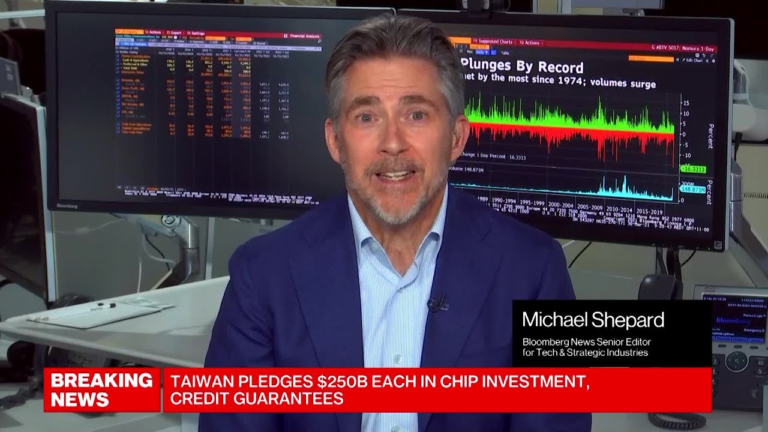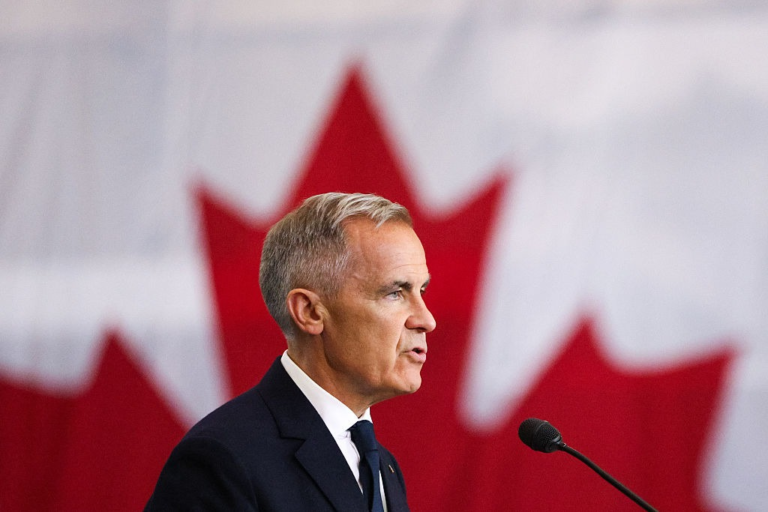
The legal fight over US President Donald Trump’s global tariffs is deepening after a federal appeal court ruled the levies were issued illegally under an emergency law, extending the chaos in global trade.
A 7-4 decision by a panel of judges on Friday night in Washington was a major setback for Trump even as it gives both sides something to boast about.
The majority upheld a May ruling by the Court of International Trade that the tariffs were illegal. But the judges left the levies intact while the case proceeds, as Trump had requested, and suggested that any injunction could potentially be narrowed to apply only to those who sued.
It is unclear exactly where the case goes from here. The Trump administration could quickly appeal the ruling to the Supreme Court, or it could allow the trade court to revisit the matter and potentially narrow the injunction against his tariffs.
“Our trading partners must be dazed and confused,” Wendy Cutler, a senior vice-president at the Asia Society Policy Institute and veteran US trade negotiator, wrote in a post on LinkedIn. “Many of them entered into framework deals with us and some are still negotiating.”
Trillions of dollars of global trade are embroiled in the case, which was filed by Democratic-led states and a group of small businesses. A final ruling against Trump’s tariffs would upend his trade deals and force the government to contend with demands for hundreds of billions of dollars in refunds on levies already paid.
“It’s very gratifying,” said Elana Ruffman, whose family-owned toy business Learning Resources won a separate lawsuit over Trump’s tariffs issued under the International Emergency Economic Powers Act, or IEEPA. “It’s great that the court agrees with us that the way these tariffs are implemented is not legal.”
Mollie Sitkowski, a trade lawyer at Faegre Drinker Biddle & Reath, pointed out in a note to clients on Friday that the ruling “does not directly apply” to tariffs on Brazil or India that were issued under the emergency law and may not address the separate removal of the “de minimis” exception for packages valued under US$800.
Friday’s ruling by the US Court of Appeal for the Federal Circuit held that Trump was wrong to issue tariffs under IEEPA, a federal law that the panel concluded was never intended to be used in such a manner. Indeed, the court noted that the law does not mention tariffs “or any of its synonyms”.
“Once again, a court has ruled that the president cannot invent a fake economic emergency to justify billions of dollars in tariffs,” New York Attorney General Letitia James, who is a party to the tariff lawsuit, said in a statement.
“These tariffs are a tax on Americans – they raise costs for working families and businesses throughout our country, causing more inflation and job losses.”
The ruling applies to Trump’s “Liberation Day” global tariffs that set a 10 per cent baseline and have been in effect for months that the administration says are meant to address a national emergency around US trade deficits. It affects the extra levies on Mexico, China and Canada that Trump said were justified by the ongoing fentanyl crisis in the US, which he also said was a national emergency under IEEPA.
The decision also covers Trump’s so-called reciprocal tariffs that took effect on August 7 for dozens of nations that failed to reach trade deals with the administration by August 1. Various carve-outs and extensions have been announced since then, leaving the final tariffs for some nations up in the air.
Trump’s tariffs were first ruled illegal in May by the US trade court in Manhattan. That decision was put on hold by the Federal Circuit for the appeal, allowing the administration to continue threatening tariffs during the negotiations.
Hours before Friday’s ruling dropped, Trump cabinet officials told the appeal court that striking down the president’s tariffs would seriously harm US foreign policy, with Treasury Secretary Scott Bessent saying it would lead to “dangerous diplomatic embarrassment” and undermine trade talks.
On Friday night after the court move, Trump posted on social media that if the tariffs went away, “it would be a total disaster for the Country”.
Cutler, who spent nearly three decades as a diplomat and negotiator at the Office of the US Trade Representative, suggested that the administration’s concerns about trade deals may now be a reality. She wrote in her post that India, hit by a 50 per cent tariff, “must be rejoicing”, while China “must be weighing its stance in making concessions in ongoing talks”.
“EU efforts to secure domestic approval of its deal may be called into question, while Japan and South Korea, who apparently have made oral deals with little in writing, may choose to slow walk current efforts until there is more US legal clarity, while still pressing for lower auto tariffs,” Cutler said.





